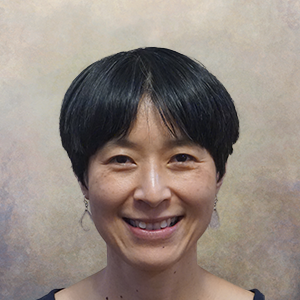
By Merin C. MacDonald
Margret Chang Emphasizes Importance of Primary Care Approach to Addiction Treatment and Management
In this month’s Chair’s Spotlight, we highlight the work of Margret Chang, MD, assistant professor of medicine, attending physician, and medical director of the Office Based Addiction Treatment Program at Tri-River Family Health Center. She is also the director of the Resident Addiction Curriculum in the Internal Medicine Residency Program at UMass Chan Medical School and holds an appointment in Pediatrics. We recently had the opportunity to be in conversation with Dr. Chang about her work in the Office Based Addiction Treatment Program, her role in training residents, and her goal of making addiction treatment and management more accessible in primary care settings.
Trained in medicine-pediatrics, Dr. Chang began her clinical practice at the Family Health Center of Worcester (FHCW) as part of her commitment to the National Health Service Corp Scholarship Program, a federal program where scholarships are awarded to students pursuing careers in primary care in exchange for their service in Health Professional Shortage Areas. While at FHCW, she had her first exposure to an outpatient addiction treatment model and developed an interest in this type of treatment after seeing that the need was so great. Their model included a dedicated nurse who worked in conjunction with primary care physicians to conduct outreach, and provide care and access to patients who needed Suboxone, a prescription medicine used to treat opioid addiction. During her time there, Dr. Chang was motivated by FHCW’s successful outpatient addiction treatment model and learned fundamental lessons about the importance of team-based care.
In 2017, Dr. Chang transferred to Tri-River Family Health Center in Uxbridge, MA. When she arrived, although there were physicians providing treatment with Suboxone, there was no formal outpatient addiction program. Gradually, over the last five years, Dr. Chang and her team have developed a more formalized program largely modeled after the program at FHCW. They have grown from treating under 20 patients by individual providers, to now having over 100 patients in the program that operates with a team-based approach, including a dedicated nurse who helps with outreach. A unique feature of this program is that it is not only available to adult patients but also to adolescents as well. There is also a similar program at their sister site, the Barre Family Health Center in Barre, MA, and they are looking to replicate this model at other locations as well.
The Office Based Addiction Treatment Program is a young program, and education and training for residents and faculty are critical for its continued growth. Of this, Dr. Chang says, “One of the quirks of addiction care is that we’ve come a long way with some treatments, but medicine hasn’t necessarily come a long way for providers to receive education so that they can safely and confidently prescribe medications for addiction to patients who might need them.” Currently, one of Dr. Chang’s primary roles and goals is actively developing clinical education in a way that empowers providers and learners to do this work in the primary care setting. She emphasizes that this type of care does not need to be done in a specialized center or environment. “The ability to be with patients who may feel a great deal of shame about their addiction, and to say to them, ‘I can help you right here in my primary care office’, that is what I love about this work.”
Dr. Chang earned her MD at The Warren Alpert Medical School at Brown University and completed her residency in medicine-pediatrics at Rhode Island Hospital/Warren Alpert in Providence, RI. She was also a research fellow in the National Diabetes Education Program at the Center for Disease Control and Prevention in Atlanta, GA, and a science writing fellow at the U.S. Department of Energy Internship Program at the Argonne National Laboratory in Argonne, IL.
Through her work in the Office Based Addiction Program and as an educator, Dr. Chang, continues establishing innovative approaches to reducing barriers to addiction treatment and management. We thank her for her contributions to the Department of Medicine.
